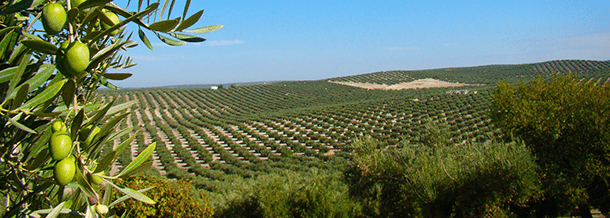MED-GOLD, working towards sustainable and efficient agriculture

On 12 June the olive-oil cooperative DCOOP (Andalucía, Spain) hosted the workshop of the European MED-GOLD project to pinpoint the areas in the olive sector most likely to benefit from climate services.
The purpose of MED-GOLD is to demonstrate the proof-of-concept for climate services in agriculture, especially as a decision-making support tool; it will promote the creation of adapted, highly specialized services based on seasonal and ten-year climate forecasts and even long-range climate projections, taking into account the present and future environmental context.
The European Commission kicked off this 4-year, nearly 5 M€, H2020 project in 2017. It is trying to come up with an answer for the incipient need of heading off the potential climate-change-driven fall in agricultural yield. Climate is the key factor in the variability of agricultural output; its increasingly whimsical fluctuations impinge on its yield, with an especially worrying effect on humankind’s main staples.
This research and innovation project draws on climate prediction models, in-situ climate observations and satellite-based earth observation systems to analyze three staples of the Mediterranean food system: grape, olive and durum wheat. It centers on such parameters as the impact of given climate conditions on crop yield forecasts, pest damage, selection of varieties, planning of farming work, among others.
The project is being led by the Italian National Agency for New Technologies, Energy and Sustainable Economic Development (ENEA), and the project partnership includes Barcelona Supercomputing Center (Spain), Barilla (Italy), BeeToBit (Italy), National research Council (Italy), DCOOP (Spain), GMV Aerospace (Spain), Horta (Italy), Joint Research Center (European Commission), Met Office (UK), National Observatory of Athens (Greece), Sogrape Vinhos (Portugal), Universidad Militar Nueva Granada (Colombia), three colleges of the University of Leeds (United Kingdom) and the University of Thessaly (Greece).
In this first phase of the project various workshops and focus groups have been set up to identify the critical operative and strategic climate-variable and bioclimatic-index-related decisions in the three target sectors. The first was held in Oporto (Portugal) in early May, hosted by SOGRAPE Vinhos to analyze the needs of the wine sector. The second, in mid-May, attended by all the key durum wheat stakeholders, was hosted by Horta in Ravenna (Italy). Finally DCOOP in Antequera (Spain) has held the olive workshop, with the aim of finding out the sector’s productive characteristics and pinpointing the relevant climate information, then characterizing and analyzing it to bring out its value as a climate service to support decision making.
All the data and information culled in these workshops is now being analyzed by the consortium before making a start on development of the climate service prototypes best suited to each stakeholder, and planned within the framework of the MED-GOLD project. Another expected result is the replicability of said climate services to other farming sectors.